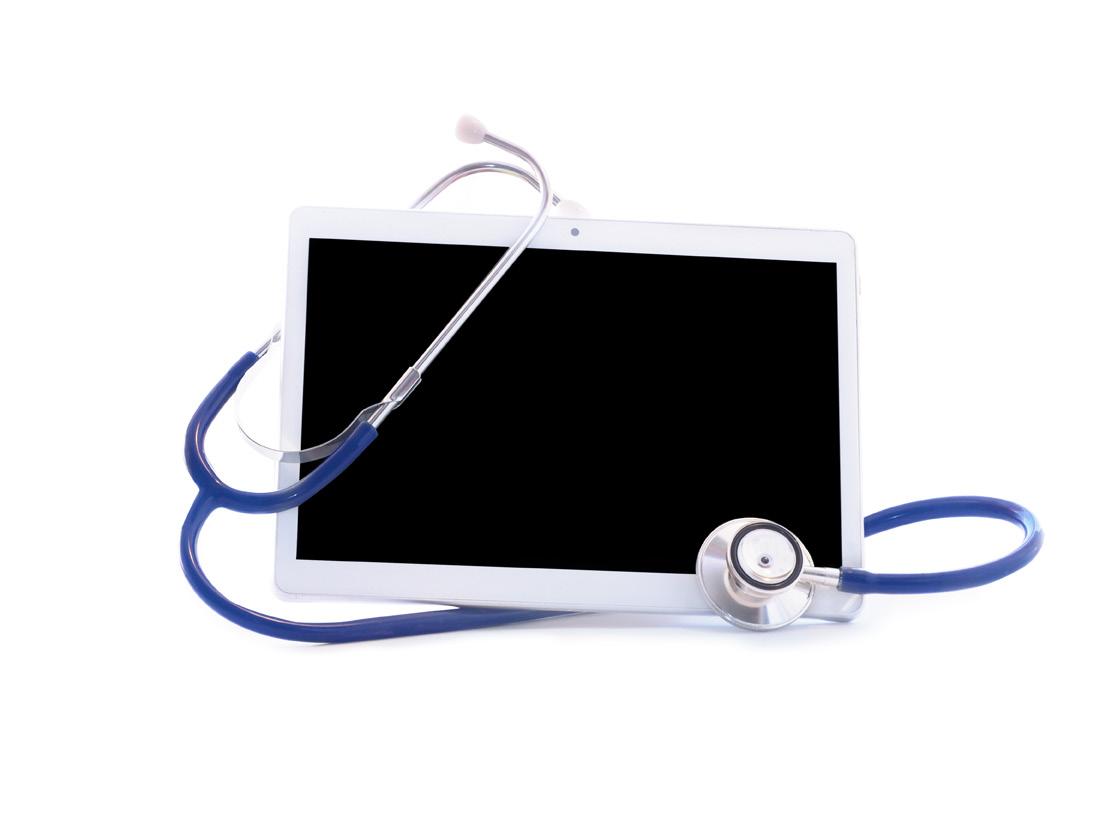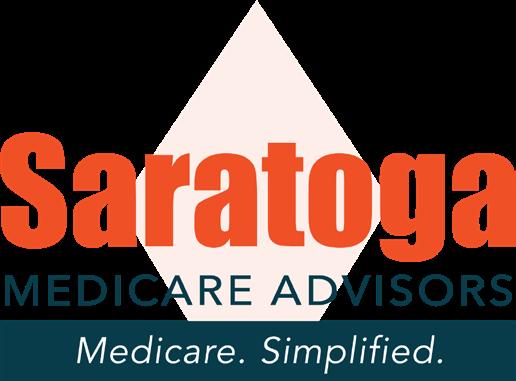2026 Employee Benefits Guide





Saint Joseph’s University
how important benefits are to you. That’s why we’re committed to helping you and your family enjoy the best possible physical, financial, and emotional well-being. It’s also why we provide you with a comprehensive, highly competitive benefits package, with the flexibility to make the choices that best meet your needs.
Use this guide to better understand the benefits offered by the University, then be sure to enroll during your enrollment period, so that you receive the benefits you want in 2026.

Full-time employees are eligible for benefits on the first of the month after their hire date. You may also enroll your eligible family members and non-tax dependent domestic partner (including the children of your domestic partner) under certain plans you choose for yourself. Eligible family members include: your legally married spouse, your domestic partner, your children, including biological children, stepchildren, adopted children, children for whom you have legal custody or guardianship, or the children of your domestic partner. Children may be covered until the end of the month in which they turn age 26 (unless the child is disabled). Disabled children may be covered beyond age 26.
New employees are eligible for benefits effective the first of the month following the date of hire, and have a grace period of up to 31 days after hire to enroll. If you don’t enroll within this time period, you will not have benefits coverage, except for plans and programs that are fully paid by the University, such as basic life, AD&D insurance, long-term disability, and employee assistance through Health Advocate. After your enrollment opportunity ends, you won’t be able to change your benefits until the next Open Enrollment, unless you experience a qualifying life event.
After you’ve carefully considered your benefit options and anticipated needs, it’s time to make your benefit selections.
To get started, log in to Workday and go to your inbox, where you will see a Benefits Enrollment Task. Click on the Task to get started. Continue through all required screens to complete enrollment. Check the I Agree checkbox to provide an electronic signature. Click Submit, then Done to confirm your elections.
Please contact the Office of Human Resources at benefits@sju.edu
It is important that you choose your benefits carefully. The IRS only allows you to make changes to your benefit elections once a year during the Open Enrollment period, unless you experience a Qualifying Life Event, such as:
• Marriage or divorce
• Birth, adoption, or legal guardianship
• Death of a spouse or child
• Employee and/or dependent gains or loses coverage elsewhere
• Loss of dependent status
• Gain/loss of eligibility for Medicare, Medicaid or the Children’s Health Insurance Program (CHIP)
• Receiving a Qualified Medical Child Support Order (QMCSO)
You have 31 days from the date of the event to contact Human Resources to make appropriate changes and provide proof of the event and documentation for dependent verification, if applicable. Instructions on reporting a life event can be found on The Nest knowledge base. Allow two pay periods for processing a life event change.
When you enroll a new dependent, you may be asked to provide evidence that your dependent meets the eligibility requirements. Acceptable proof may include any of the following:
• A marriage license
• A birth or hospital certificate
• Formal court designation
The medical, dental and vision plans allow for enrollment of your non-tax dependent domestic partner as well as your domestic partner’s children. A domestic partner’s child can only be enrolled with the enrollment of the domestic partner.
Eligibility: In order to be eligible, you and your domestic partner must meet the following requirements: (1) be at least age 18, (2) neither is legally married to another person, (3) not related by blood to a degree that would prohibit marriage, (4) are in an exclusive, committed relationship that is intended to be permanent, (5) share a mutual obligation of financial support, and (6) share a principal residence that is intended to be permanent. A Domestic Partner Affidavit must be completed during the enrollment process. If the partnership ends, the employee must notify the Office of Human Resources within 30 days.
Health Savings Account (HSA): You may not receive tax-free distributions from a Health Savings Account (HSA) for reimbursement of medical expenses for your domestic partner and their children unless your domestic partner and their children are otherwise eligible for tax-free coverage under the Internal Revenue Code (IRC) as described in the section below titled “Cost & Tax Implications.” An employees’ HSA funds used to pay for medical expenses for their non-tax dependents are subject to federal income tax and possibly an additional 20 percent penalty tax. Other special rules apply to HSAs. For more information, refer to the Summary Plan Description and IRS Publication 969.
Cost & Tax Implications: The full cost of your domestic partner’s coverage will be added to your taxable income. You will be subject to taxation for adding your domestic partner and their children even if you are already paying the family rate for coverage. The amount subject to taxation will appear on your pay statement as additional income or “imputed income,” even though you do not actually receive the additional cash. In effect, this amount will increase the amount used to calculate how much you will pay in taxes. Please note that this amount can be substantial. The applicable withholdings will be deducted from your pay each pay period. The taxable income will be reported on the W-2 form issued to you for the years in which your domestic partner coverage is provided.

Medical and prescription benefits from Saint Joseph's University help you stay well and get the care you and your family need. You have access to an extensive network of high-quality, lower-cost providers. Your plans also offer many resources and tools to help you maintain a healthy lifestyle.
All full-time employees have access to enroll in a high-deductible health plan (HDHP) through Independence Blue Cross (via the Personal Choice PPO Network). The HDHP includes a health savings account (HSA).
Employees based out of Hawk Hill and University City also have access to enroll in the HMO-25 plan (via the Keystone HMO Network in PA and DE and the AmeriHealth Network in NJ).

Note: All services besides preventive, including prescription, apply to the deductible first in the HDHP plan.
Prescription drug coverage will be included with your medical coverage. This coverage will be offered through CVS Caremark, a full-service pharmacy benefits administrator that provides an exceptional customer service experience to employees.
Saint Joseph’s University offers the prescription drug plan to employees and their dependents.
• When available, choose generic medications over brand-name medications. Generic drugs are usually just as effective and typically cost 30% to 70% less.
• Take advantage of mail order or the retail 90-day supply to buy maintenance drugs at a discount. Log on at caremark.com to compare prescription prices.


Both medical plans offer comprehensive coverage for you and your family. In addition, you pay $0 for in-network preventive care such as annual checkups, cancer screenings, vaccinations, and more. Although the plans share many features, there are some important differences.
Want to make sure you are receiving the best care for the most affordable cost? Use In-Network providers. To find an In-Network provider, call the SJU Champion Customer Service Team at 1-833-485-2400 or visit ibx.com
• Lower per-paycheck contributions for coverage
• A higher annual deductible that applies to all nonpreventive care, including prescriptions.
• A pretax* HSA to pay for current and future eligible medical expenses - with an annual University contribution to your HSA
• No deductible and low copayments
• A required primary care physician, with referrals to use a specialist
• Eligibility to enroll in a pretax traditional Health Care Flexible Spending Account (HCFSA) to pay for eligible medical, dental, and vision out-of-pocket expenses
• No out-of-network coverage except for emergency room visits
*Your HSA is free from federal income taxes; however, you may pay state and other taxes, depending on your residence. Talk with your tax advisor for details.

Saint Joseph's University provides a convenient way for you to pay and save for health care now - and in the future. When you enroll in the Personal Choice HDHP, you're eligible to contribute to a tax-free* HSA, which helps you save money on eligible health care expenses for yourself and your tax-dependents. At the beginning of each calendar year, the University contributes $700 to the accounts of those enrolled for Employee Only coverage, and $1,400 for those enrolled in Employee plus Spouse or Domestic Partner, Employee plus Child(ren), or Family coverage. If you are enrolling in this Plan other than during Open Enrollment, you will receive a prorated contribution from the University.
* Your HSA is free from federal income taxes; however, you may pay state and other taxes, depending on your residence. Talk with your tax advisor for details.
If you participate in the High Deductible Health Plan (HDHP), you have the ability to contribute to a Health Savings Account (HSA).
Advantages of the HSA
• There is no “use it or lose it” provision with an HSA. If you don’t use the money in your account by the end of the year, don’t worry! Unused funds will roll over year after year.
• You can save and invest unused HSA money for future health care needs.
• Your HSA is portable. When you retire or leave the University, your HSA funds go with you.
• Your HSA contributions are pre-tax, and earnings and eligible contributions are tax-free.
To be eligible for an HSA, you must meet the following criteria:
• You are covered under the HDHP medical option.
• You have no other non-high deductible health coverage (including Medicare).
• You aren't claimed as a dependent on someone else's tax return.
• You or your spouse cannot participate in a traditional health care FSA, even under another employer’s plan.
You can only use funds that have already been deposited into your account. Once funds are available, you have three easy ways to pay:

• Debit Card: After opening your HSA, you’ll receive a debit card. Use it to pay for eligible expenses directly—your payment will be automatically deducted from your account.
• Reimbursement: If you pay out of pocket for an eligible expense, you can withdraw money from your HSA to reimburse yourself.
• Online Payments: Pay your healthcare provider directly from your HSA using the online payment feature.
Teladoc Health provides 24/7 access to licensed doctors, therapists, and other healthcare professionals via phone or video. Whether you need treatment for common illnesses like colds and flu, mental health support, or expert medical advice, Teladoc offers convenient, affordable care from the comfort of your home. Skip the waiting room and get the care you need when you need it.
To get started, call 800-835-2362 or visit teladochealth.com

While we recommend that you seek routine medical care from your primary care physician whenever possible, there are alternatives available. Services may vary, so it’s a good idea to visit the care provider’s website. Be sure to check that the facility is in-network by calling the number on the back of your medical ID card, or by visiting ibx.com
When you’re experiencing cold/ flu like symptoms
When you need routine/ preventive care
When you have a sore throat or a sprain
When you have chest pain or difficulty breathing
Saint Joseph's University's dental benefits offer you and your family affordable options through two Delta Dental plans:
• Delta Dental PPO
• DeltaCare USA (DHMO)
You can enroll in dental coverage even if you don't have medical coverage through the University.
This plan offers in- and out-of-network coverage, giving you access to Delta Dental Premier dentists, the largest dental network in the country. You will pay more for out-of-network providers, so it's important to choose in-network providers when possible.
Pennsylvania & New Jersey
This plan features set copayments, no annual deductibles, and no maximums for covered benefits. It is very important to check to make sure your dentist is part of the DeltaCare USA network and that they are accepting new DHMO patients before you select this plan. You must select a dentist from the DeltaCare network or you will not have coverage as there are no out-of-network benefits with this plan.
Remember, you can use your Health Care Flexible Spending Account or Health Savings Account for qualified out-of-pocket dental expenses!
To find an In-Network dentist, visit deltadentalins.com or call 800-932-0783 for the PPO plan, or 800-422-4234 for the DHMO plan.

*Visit www.sjubenefits.com for the DHMO fee schedule.
Saint Joseph's University offers premium vision benefits through Davis Vision (a subsidiary of Independence Blue Cross) to ensure that you and your family have access to quality eye care. The vision plan offers both in- and out-of-network coverage. You can maximize your benefits and reduce your out-of-pocket costs when you receive care from a Davis Vision network provider.
To find a network provider, visit davisvision.com or call 800-999-5431.
Note: The Keystone HMO vision rider is still available, but it does not provide the level of care and robust benefits available through the Davis Vision Plan.
Davis Collection Frames: No charge Non-Davis Vision Collection Frames: Up to $270 allowance plus 20% off
Davis Collection Lenses: No charge Non-Davis Vision Contact lensess: Up to $250 allowance plus 15% off
12 months, in lieu of glasses

Bi-Weekly (26 times per year)
While health care costs continue to rise, Saint Joseph’s University is committed to keeping costs manageable. The amount you pay is deducted from your paycheck before taxes. Your specific cost is determined by your plan choice and coverage tier.
Flexible spending accounts, or FSAs, provide you with an important tax advantage that can help you pay health care and dependent care expenses on a pre-tax basis. By anticipating your family’s health care and dependent care costs for the next plan year, you can lower your taxable income.
Who can participate?
employee except those in a HDHP with HSA
Eligible Expenses
When are funds available?
Medical, Dental, & Vision out-ofpocket expenses like copays/ deductibles/coinsurance; OTC medications
Full annual election is available as of first day participation
Keep in mind, FSAs are “use-it-or-lose-it” accounts. You will forfeit any unused amount remaining in the account at the end of the plan year.
The Health Care FSA can cover expenses incurred up to 2.5 months after the plan year ends (March 15, 2027). Claims can be submitted until April 30.
After this run-out period, any remaining balances from the prior year are forfeited.
Day care, before/after school care, summer camp for your child under age 13; elder care for a relative who lives in the home
Can only access funds that have been deposited in your account
Mass transit (bus, train, subway), qualified parking Tolls, taxis, gas – not eligible
Can only access funds that have been deposited in your account

Life and Accidental Death & Dismemberment (AD&D) insurance provides protection to those who depend on you financially, in the event of your death or an accident that results in death or serious injury. This coverage is provided through Unum.
Life insurance can help provide for your loved ones if something were to happen to you. Saint Joseph’s University provides you with Life and AD&D Insurance. The University pays for the full cost of this benefit, with coverage effective on the first day of the month after 90 days of hire. You must be actively at work for your life insurance coverage to become effective. Enrollment is automatic – you don’t have to do anything to receive this coverage.
Note: Life insurance above $50,000 will be considered taxable imputed income.
Eligibility Waiting Period 1st of the month after 90 days of hire
Benefit Amount
Age Reduction
2.5 times your annual salary (rounded to the next higher multiple of 1,000) up to plan maximums
Age 70:
Evidence of insurability may be required if:
• You are buying an insurance amount higher than the guaranteed issue amount for your plan.
• You declined coverage when first eligible and wish to purchase additional coverage at open enrollment or after experiencing a qualifying life event.
For both the Basic Life/AD&D coverage and the Supplemental coverage, it is important to designate a beneficiary. In the event of your death, your designated beneficiary will receive the benefits from these insurance coverages.
Questions on either of these plans? Call Unum at 866-679-3054
While the University offers basic life insurance, some employees may be interested in additional coverage based off their personal circumstances. Depending on your needs, you may want to consider buying supplemental coverage.
With voluntary life insurance, you are responsible for paying the full cost of coverage through payroll deductions. You can purchase coverage for yourself, your spouse, or your dependent child(ren) as outlined in the chart below. You must be actively at work on the effective date of your coverage.
$0.115 no matter how many children are covered per $1,000 benefit
In the event that you become disabled from a non-work-related injury or sickness, disability income benefits will provide a partial replacement of lost income. Saint Joseph’s University’s disability program through Unum will help to ensure that you still collect a part of your income until you can return to work or you reach retirement age. The University pays for the full cost of this benefit.
Disability coverage can help ensure you have money to pay for basic needs such as housing, utilities, food, transportation, childcare, and more.
• Short/Long-term Disability, call Unum at 866-679-3054
• Leave of Absence questions, call Unum at 866-868-6737


To learn more about these plans, visit www.presents.voya.com/EBRC/SaintJosephsUniversity or call 877-236-7564. Review the chart below to understand the Voya supplemental plan options.
Accident insurance supplements your primary medical plan by providing cash benefits in cases of accidental injuries. You can use this money to help pay for medical expenses not paid by your medical plan (such as your deductible or coinsurance) or for anything else (such as everyday living expenses). If you apply, you automatically receive the base plan — no health questions to answer. Benefits are paid directly to you (unless assigned to someone else) based on a schedule according to the covered injury or occurrence. You can purchase this plan through Voya.
You receive a cash benefit up to a specific amount for:
• Accidental death or dismemberment
• Dislocation or fracture
• Initial hospital confinement
• Intensive care
• Ambulance and other medical expenses
• Outpatient physician’s treatment
When a serious illness strikes, such as a heart attack, stroke, or cancer, critical illness insurance can provide a lump-sum benefit to cover out-of-pocket expenses for your treatments that are not covered by your medical plan. You can also use the money to take care of your everyday living expenses, such as housekeeping services, special transportation services, and daycare. Plus, you can use the benefits more than once. Diagnoses must be at least 12 months apart or the conditions can’t be related to each other. You may elect a $15,000 or $30,000 benefit; children and spouses may receive up to 50% of your coverage amount (up to $7,500 or $15,000). You can purchase this coverage through Voya.
Examples of covered Critical Illnesses include:
• Heart attack
• End-stage renal (kidney) failure
• Coronary artery bypass
• Stroke
• Coma
• Major organ failure
• Cancer

There are times when you cannot do it alone. With Health Advocate Employee Assistance, you don’t have to.
Life can be unpredictable, and it’s not always easy. So it’s a big deal to know there’s help available when you need it. That’s what the Employee Assistance Program (EAP), provided by Health Advocate, is all about. This program is provided by Saint Joseph’s University – at no cost to you.
With an EAP, you and your family household members have access to free, confidential resources to help handle life’s everyday - and not so every day - challenges. All services are confidential, outcomes will not be shared, and the plan includes a total of 8 face-to-face or virtual visits with a mental health provider.
Whether you’re interested in work/life resources, mental health assistance, or legal and financial advice, the EAP service can connect you and members of your household with a variety of professionals.
To get started, call 866-799-2728, visit HealthAdvocate.com/members or email answers@HealthAdvocate.com


Faculty and staff may contribute to the Saint Joseph’s University 403(b) Retirement Plan on the first of the month after their hire date. The plan is administered by TIAA. Enrollment is completed online at www.tiaa.org/sju. Starting on the first day of the month following one year of service, full-time faculty and staff are eligible to receive University contributions to the plan.
The University will contribute 7% of the regular salary of each full-time faculty and staff member. In addition, the University will match the contribution of each eligible participant who has satisfied the one-year requirement, up to an additional 3%. Contribution changes, fund selections, and retirement plan beneficiary designations are completed on the TIAA site at www.tiaa.org/sju
Faculty and staff hired after June 1, 2012 are subject to a threeyear cliff vesting schedule. A three-year cliff vesting schedule means the participant is 0% vested after years one and two, and then 100% vested after completing 36 months of benefit-eligible service. Participants who were employed by a public or private educational institution offering a baccalaureate or advanced degree immediately preceding their full-time employment at the University (allowing no more than a 90-day break in employment and with no other employment in between) will be credited with their service at that institution for the purpose of vesting. Vesting only applies to University contributions, including matching contributions. All monies that a participant contributes to the plan are fully vested.
In addition to the 403(b) Plan, the University makes available a Section 457(b) Deferred Compensation Plan that allows eligible faculty and staff to make elective, tax- deferred contributions above the limits imposed on the University’s regular plan.

With the MetLife Legal Plan, you and your eligible dependents have access to a wide range of personal legal services for both routine and unexpected situations. The plan eliminates the hassle of hourly fees and claim forms when working with a network attorney, and you can use the services as often as needed without any limitations.
You have more than 10,000 plan attorneys from which to choose to represent you on a variety of covered legal matters, including (but not limited to):
• Estate planning documents
• Consumer protection
• Defense of civil lawsuits
• Immigration assistance
• Financial matters
• Identity theft issues
• Family law
• Document preparation
• Real estate matters
• Traffic matters
Identity theft is becoming increasingly common. Allstate Identity Protection keeps an eye on billions of public records to identify any unusual activity that could indicate identity theft. Their credit monitoring service notifies you of important updates to your credit report or suspicious transactions on your credit cards. If you or a covered family member fall victim to identity theft, dedicated specialists will take charge of your case and work to restore your identity completely.
• Dark web monitoring
• Solicitation reduction
• Data breach notification
• High-risk transaction monitoring
• Credit alerts and credit freezing
• Full-service remediation
• 24/7 US-based customer support

The Benefits Member Advocacy Center (Benefits MAC), provided by Conner Strong & Buckelew, can help you and your covered family members navigate your benefits. Contact the Benefits MAC to:
• Find answers to your benefits questions
• Search for participating network providers
• Clarify information received from a provider or your insurance company, such as a bill, claim, or explanation of benefits (EOB)
• Guide you through the enrollment process or how you can add or delete coverage for a dependent
• Rescue you from a benefits problem you’ve been working on
• Discover all that your benefit plans have to offer
You can contact a Member Advocate Monday through Friday, 8:30 am to 5:00 pm EST at 800.563.9929 or go to www.connerstrong.com/memberadvocacy and complete the fields.

Medicare enrollment can be tricky - get help from a specialist.
You can contact Saratoga Medicare Advisors at 856-263-3152, email Bill Webb at bwebb@saratogabenefits.com, or visit www.saratogamedicareadvisors.com for more information.

This feature provides a broad array of services, discounts and special deals on consumer services, travel services, recreational services, and much more. Simply access the site, register, and you can begin using today.
For more information, visit https://connerstrong.corestream.com
Save money and achieve your fitness goals! Choose from over 10,000 gyms including national chains, regional chains, and local gyms.
Save with Husk Lowest Price Guarantee
Enrolling is easy! Husk handles all inquiries, enrollments, etc. No paperwork, no payroll deductions, and no hassle! Start by moving! Once you enroll, you can start by noon the next day!
For more information, visit https://marketplace.huskwellness. com/connerstrong
This services offers an easy way to compare prices for all FDA-approved prescription drugs at virtually every pharmacy in America. You can find pharmacy coupons, manufacturer discounts, generics, comparable drug choices, and savings tips all in one place. GoodRx can often beat the copay amount or help with drugs that are not covered by the plan.
For more information, visit https://connerstrong.goodrx.com
This resource covers over a thousand health and wellness topics in a simple, straightforward manner. The HealthyLearn OnDemand Library features all the health information you need to be well and stay well.
For more information, visit www.healthylearn.com/connerstrong


Balance Billing– Balance billing, sometimes called surprised billing, is a medical bill from a healthcare provider billing a patient for the difference between the total cost of services being charged and the amount the insurance pays.
Beneficiary– The person you designate to receive your life insurance proceeds in the event of your death.
Coinsurance– The amount or percentage that you pay for certain covered health care services under your health plan. This is typically the amount paid after a deductible is met, and can vary based on the plan design.
High Deductible Health Plan (HDHP)- A type of health insurance that has lower monthly premiums but higher out-of-pocket costs for medical care. This means you’ll pay more upfront for services until you meet your deductible, though preventive care is usually covered at no cost. HDHPs can be paired with a Health Savings Account (HSA), which lets you set aside pre-tax money to help pay for qualified healthcare expenses.
Copayment – A flat fee that you pay toward the cost of covered medical services.
Covered Expenses – Health care expenses that are covered under your health plan.
Deductible – A specific dollar amount you pay out of pocket before benefits are available through a health plan. Under some plans, the deductible is waived for certain services.
Dependent – Individuals who meet eligibility requirements under a health plan and are enrolled to receive benefits from the plan as a qualified dependent.
Flexible Spending Account (FSA) – An account that allows you to save tax-free dollars for qualified medical and/or dependent care expenses that are not reimbursed. You determine how much you want to contribute to the FSA at the beginning of the plan year. Most funds must be used by the end of the year, as there is only a limited carryover amount.
Health Management Organization (HMO) – A type of health insurance plan that usually limits coverage to care from doctors who work for or contract within a specified network. Premiums are paid monthly, and a small copay is due for each office visit and hospital stay. HMOs require that you select a primary care physician who is responsible for managing and coordinating all of your health care.
Health Savings Account (HSA) – An employee-owned medical savings account used to pay for eligible medical expenses. Funds contributed to the account are pre-tax and do not have to be used within a specified time period. HSAs must be coupled with qualified high-deductible health plans (HDHP).
In-network – Health care received from your primary care physician or from a specialist within an outlined list of health care practitioners.
Inpatient – A person who is treated as a registered patient in a hospital or other health care facility.
Medicare – An insurance program administered by the federal government to provide health coverage to individuals aged 65 and older, or who have certain disabilities or illnesses.
Member – You and those covered become members when you enroll in a health plan. This includes eligible employees, their dependents, COBRA beneficiaries and surviving spouses.
Out-of-network – Health care you receive without a physician referral, or services received by a non-network service provider. Out-of-network health care and plan payments are subject to deductibles and coinsurance.
Out-of-pocket Expense – Amount that you must pay toward the cost of health care services. This includes deductibles, copayments and coinsurance.
Out-of-pocket Maximum (OOPM) – The highest out-of-pocket amount that you can be required to pay for covered services during a benefit period.
Preferred Provider Organization (PPO) – A health plan that offers both in-network and out-of-network benefits. Members must choose one of the in-network providers or facilities to receive the highest level of benefits.
The Consolidated Omnibus Budget Reconciliation Act (COBRA) requires group health plans to offer continuation coverage to covered employees, former employees, spouses, former spouses, and dependent children when group health coverage would otherwise be lost due to certain specific events. Those events include the death of a covered employee, termination or reduction in the hours of a covered employee’s employment for reasons other than gross misconduct, a covered employee’s becoming entitled to Medicare, divorce or legal separation of a covered employee and spouse, and a child’s loss of dependent status (and therefore coverage) under the plan. COBRA sets rules for how and when continuation coverage must be offered and provided, how employees and their families may elect continuation coverage, and what circumstances justify terminating continuation coverage.
In accordance with the State laws of Texas, Missouri, Oklahoma, and Kansas, we are providing this notice to inform you that your group health plan will cover both limited and elective abortion services. You may choose to enroll in medical coverage without including coverage for these services. If you have any questions or need assistance in making your election, please contact the HR department. For help finding a provider or understanding the specific services covered, you may also reach out to the Cigna customer service team at 800-244- 6224 or the Health Advocate member resource team at 866-695-8622. This notice is being provided to comply with state laws in Texas, Missouri, Oklahoma, and Kansas. If you have further questions, please contact the Cigna customer service team at 800-244-622 or log in to myCigna to start a chat with a representative.
The Women’s Health and Cancer Rights Act of 1998 (“WHCRA”) requires group health plans, insurance issuers, and HMOs who already provide medical and surgical benefits for mastectomy procedures to provide insurance coverage for reconstructive surgery following mastectomies. This expanded coverage includes (i) reconstruction of the breast on which the mastectomy has been performed; (ii) surgery and reconstruction of the other breast to produce a symmetrical appearance; and (iii) prostheses and physical complications at all stages of mastectomy, including lymphedemas.
Group health plans and health insurance issuers generally may not, under federal law, restrict benefits for any hospital length of stay in connection with childbirth for the mother or newborn child to less than 48 hours following a vaginal delivery, or less than 96 hours following a cesarean section. However, federal law generally does not prohibit the attending provider or physician, after consulting with the mother, from discharging the mother or her newborn earlier than 48 hours (or 96 hours, as applicable).
You have the right to designate any participating primary care provider who is available to accept you or your family members (for children, you may designate a pediatrician as the primary care provider). For information on how to select a primary care provider and for a list of participating primary care providers, contact the Plan Administrator. You do not need prior authorization from the Plan or from any other person, including your primary care provider, in order to obtain access to obstetrical or gynecological care from a health care professional; however, you may be required to comply with certain procedures, including obtaining prior authorization for certain services, following a pre-approved treatment plan, or procedures for making referrals. For a list of participating health care professionals who specialize in obstetrics or gynecology, contact the Plan Administrator.
If you or your children are eligible for Medicaid or CHIP and you’re eligible for health coverage from your employer, your state may have a premium assistance program that can help pay for coverage, using funds from their Medicaid or CHIP programs. If you or your children aren’t eligible for Medicaid or CHIP, you won’t be eligible for these premium assistance programs but you may be able to buy individual insurance coverage through the Health Insurance Marketplace. For more information, visit healthcare.gov.
If you or your dependents are already enrolled in Medicaid or CHIP and you live in a State listed below, contact your State Medicaid or CHIP office to find out if premium assistance is available.
If you or your dependents are NOT currently enrolled in Medicaid or CHIP, and you think you or any of your dependents might be eligible for either of these programs, contact your State Medicaid or CHIP office or dial 1-877-KIDS NOW or insurekidsnow.gov to find out how to apply. If you qualify, ask your state if it has a program that might help you pay the premiums for an employersponsored plan.
If you or your dependents are eligible for premium assistance under Medicaid or CHIP, as well as eligible under your employer plan, your employer must allow you to enroll in your employer plan if you aren’t already enrolled. This is called a “special enrollment” opportunity, and you must request coverage within 60 days of being determined eligible for premium assistance. If you have questions about enrolling in your employer plan, contact the Department of Labor at askebsa.dol.gov or call 1-866444-EBSA(3272).
If you live in one of the following states, you may be eligible for assistance paying your employer health plan premiums. The following list of states is current as of July 31, 2024. Contact your State for more information on eligibility –
ALABAMA – Medicaid
Website: http://myalhipp.com/ Phone: 1-855-692-5447
ALASKA – Medicaid
The AK Health Insurance Premium Payment Program
Website: http://myakhipp.com/
Phone: 1-866-251-4861
Email: CustomerService@MyAKHIPP.com
Medicaid Eligibility: https://health.alaska.gov/dpa/Pages/default. aspx
ARKANSAS – Medicaid
Website: http://myarhipp.com/ Phone: 1-855-MyARHIPP (855-692-7447)
CALIFORNIA – Medicaid
Health Insurance Premium Payment (HIPP) Program Website: http://dhcs.ca.gov/hipp
Phone: 916-445-8322
Fax: 916-440-5676
Email: hipp@dhcs.ca.gov
COLORADO – Health First Colorado (Colorado’s Medicaid Program) & Child Health Plan Plus (CHP+)
Health First Colorado Website: https://www.healthfirstcolorado. com/
Health First Colorado Member Contact Center: 1-800-221-3943/State Relay 711
CHP+: https://hcpf.colorado.gov/child-health-plan-plus
CHP+ Customer Service: 1-800-359-1991/State Relay 711
Health Insurance Buy-In Program (HIBI): https://www.mycohibi. com/
HIBI Customer Service: 1-855-692-6442
FLORIDA – Medicaid
Website: https://www.flmedicaidtplrecovery.com/ flmedicaidtplrecovery.com/hipp/index.html
Phone: 1-877-357-3268
GEORGIA – Medicaid
GA HIPP Website: https://medicaid.georgia.gov/health-insurancepremium-payment-program-hipp
Phone: 678-564-1162, Press 1
GA CHIPRA Website: https://medicaid.georgia.gov/programs/ third-party-liability/childrens-health-insurance-programreauthorization-act-2009-chipra
Phone: 678-564-1162, Press 2
INDIANA – Medicaid
Health Insurance Premium Payment Program
All other Medicaid
Website: https://www.in.gov/medicaid/ http://www.in.gov/fssa/dfr/
Family and Social Services Administration
Phone: 1-800-403-0864
Member Services Phone: 1-800-457-4584
IOWA – Medicaid and CHIP (Hawki)
Medicaid Website: https://hhs.iowa.gov/programs/welcome-iowa-medicaid
Medicaid Phone: 1-800-338-8366
Hawki Website: https://hhs.iowa.gov/programs/welcome-iowa-medicaid/iowahealth-link/hawki
Hawki Phone: 1-800-257-8563
HIPP Website: https://hhs.iowa.gov/programs/welcome-iowamedicaid/fee-service/hipp
HIPP Phone: 1-888-346-9562
KANSAS – Medicaid
Website: https://www.kancare.ks.gov/ Phone: 1-800-792-4884
HIPP Phone: 1-800-967-4660
KENTUCKY – Medicaid
Kentucky Integrated Health Insurance Premium Payment Program (KI-HIPP) Website: https://chfs.ky.gov/agencies/dms/member/Pages/kihipp.aspx Phone: 1-855-459-6328
Email: KIHIPP.PROGRAM@ky.gov
KCHIP Website: https://kynect.ky.gov Phone: 1-877-524-4718
Kentucky Medicaid Website: https://chfs.ky.gov/agencies/dms
LOUISIANA – Medicaid
Website: www.medicaid.la.gov or www.ldh.la.gov/lahipp Phone: 1-888-342-6207 (Medicaid hotline) or 1-855-618-5488 (LaHIPP)
MAINE – Medicaid
Enrollment Website: https://www.mymaineconnection.gov/ benefits/s/?language=en_US Phone: 1-800-442-6003
TTY: Maine relay 711
Private Health Insurance Premium Webpage: https://www.maine.gov/dhhs/ofi/applications-forms Phone: 1-800-977-6740
TTY: Maine relay 711
MASSACHUSETTS – Medicaid and CHIP
Website: https://www.mass.gov/masshealth/pa Phone: 1-800-862-4840
TTY: 711
Email: masspremassistance@accenture.com
MINNESOTA – Medicaid
Website: https://mn.gov/dhs/health-care-coverage/ Phone: 1-800-657-3672
MISSOURI – Medicaid
Website: http://www.dss.mo.gov/mhd/participants/pages/hipp. htm Phone: 573-751-2005
MONTANA – Medicaid
Website: http://dphhs.mt.gov/MontanaHealthcarePrograms/HIPP Phone: 1-800-694-3084
Email: HHSHIPPProgram@mt.gov
NEBRASKA – Medicaid
Website: http://www.ACCESSNebraska.ne.gov
Phone: 1-855-632-7633
Lincoln: 402-473-7000
Omaha: 402-595-1178
NEVADA – Medicaid
Medicaid Website: http://dhcfp.nv.gov
Medicaid Phone: 1-800-992-0900
NEW HAMPSHIRE – Medicaid
Website: https://www.dhhs.nh.gov/programs-services/medicaid/ health-insurance-premium-program
Phone: 603-271-5218
Toll free number for the HIPP program: 1-800-852-3345, ext. 15218 Email: DHHS.ThirdPartyLiabi@dhhs.nh.gov
NEW JERSEY – Medicaid and CHIP
Medicaid Website: http://www.state.nj.us/humanservices/dmahs/ clients/medicaid/
Phone: 1-800-356-1561
CHIP Premium Assistance Phone: 609-631-2392
CHIP Website: http://www.njfamilycare.org/index.html
CHIP Phone: 1-800-701-0710 (TTY: 711)
NEW YORK – Medicaid
Website: https://www.health.ny.gov/health_care/medicaid/ Phone: 1-800-541-2831
NORTH CAROLINA – Medicaid
Website: https://medicaid.ncdhhs.gov/ Phone: 919-855-4100
NORTH DAKOTA – Medicaid
Website: https://www.hhs.nd.gov/healthcare
Phone: 1-844-854-4825
OKLAHOMA – Medicaid and CHIP
Website: http://www.insureoklahoma.org Phone: 1-888-365-3742
OREGON – Medicaid and CHIP
Website: http://healthcare.oregon.gov/Pages/index.aspx Phone: 1-800-699-9075
PENNSYLVANIA – Medicaid and CHIP
Website: https://www.pa.gov/en/services/dhs/apply-formedicaid-health-insurance-premium-payment-program-hipp. html
Phone: 1-800-692-7462
CHIP Website: https://www.dhs.pa.gov/CHIP/Pages/CHIP.aspx CHIP Phone: 1-800-986-KIDS (5437)
RHODE ISLAND – Medicaid and CHIP
Website: http://www.eohhs.ri.gov/ Phone: 1-855-697-4347, or 401-462-0311 (Direct RIte Share Line)
SOUTH CAROLINA – Medicaid
Website: https://www.scdhhs.gov
Phone: 1-888-549-0820
SOUTH DAKOTA - Medicaid
Website: http://dss.sd.gov
Phone: 1-888-828-0059
TEXAS – Medicaid
Website: https://www.hhs.texas.gov/services/financial/healthinsurance-premium-payment-hipp-program
Phone: 1-800-440-0493
UTAH – Medicaid and CHIP
Utah’s Premium Partnership for Health Insurance (UPP) Website: https://medicaid.utah.gov/upp/ Email: upp@utah.gov
Phone: 1-888-222-2542
Adult Expansion Website: https://medicaid.utah.gov/expansion/ Utah Medicaid Buyout Program Website: https://medicaid.utah. gov/buyout-program/
CHIP Website: https://chip.utah.gov/
VERMONT– Medicaid
Website: https://dvha.vermont.gov/members/medicaid/hippprogram
Phone: 1-800-250-8427
VIRGINIA – Medicaid and CHIP
Website: https://coverva.dmas.virginia.gov/learn/premiumassistance/famis-select and https://coverva.dmas.virginia.gov/ learn/premium-assistance/health-insurance-premium-paymenthipp-programs
Medicaid/CHIP Phone: 1-800-432-5924
WISCONSIN – Medicaid and CHIP Website: https://www.dhs.wisconsin.gov/ badgercareplus/p-10095.htm
Phone: 1-800-362-3002
WYOMING – Medicaid
Website: https://health.wyo.gov/healthcarefin/medicaid/ programs-and-eligibility/
Phone: 1-800-251-1269
To see if any other states have added a premium assistance program since March 17, 2025, or for more information on special enrollment rights, contact either:
U.S. Department of Labor Employee Benefits Security Administration www.dol.gov/agencies/ebsa 1-866-444-EBSA (3272)
U.S. Department of Health and Human Services Centers for Medicare & Medicaid Services www.cms.hhs.gov
1-877-267-2323, Menu Option 4, Ext. 61565


While every effort has been made to ensure accuracy of this benefits guide, the plan documents and contracts will prevail in case of discrepancy between this guide and the plan documents and contracts. In addition, Saint Joseph’s University reserves the right to modify or terminate any benefit plans at any time.